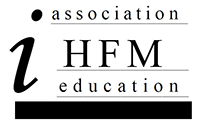Type of Submission
Refereed Article
Abstract
Hospitality initial public offerings (IPOs) experienced average first-day price increases of 17.1% between January 1981 and December 2001. This price increase, referred to as IPO underpricing, represents a substantial opportunity cost to the owners of the issuing firm. IPO underpricing is a critical consideration for managers of private hospitality firms who are considering going public. The increased liquidity, easier access to equity capital, and other benefits that accrue to publicly traded firms must be carefully weighed against the significant cost of underpricing. This paper explains the relationship between the marketing process of IPOs and the degree of underpricing. We test the hypothesis that underpricing is a reward for the information revealed by regular investors during the marketing process of the IPO. We explain why underpricing is a necessity for managers of private hospitality firms if they choose to go public. For managers of private hospitality firms who are considering taking their firms public, our results provide an historical benchmark for the underpricing that they can expect to transfer to outside investors which is different from that of the overall market. Beyond benchmarking the cost of going public, we test theories that predict underpricing and investigate the use of share allocations as an incentive for truth telling.
Recommended Citation
Canina, Linda; Chang, Charles; and Gibson, Scott
(2008)
"IPO Underpricing in the Hospitality Industry: A Necessary Evil?,"
Journal of Hospitality Financial Management: Vol. 16:
Iss.
2, Article 2.
Available at:
https://scholarworks.umass.edu/jhfm/vol16/iss2/2
